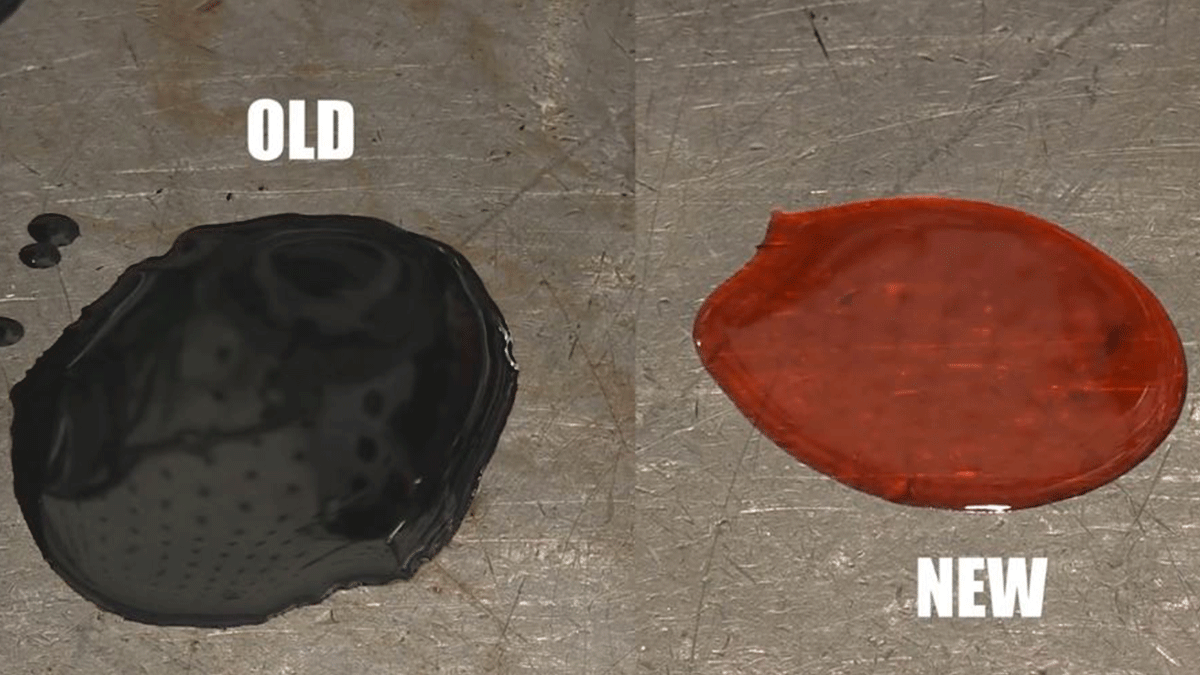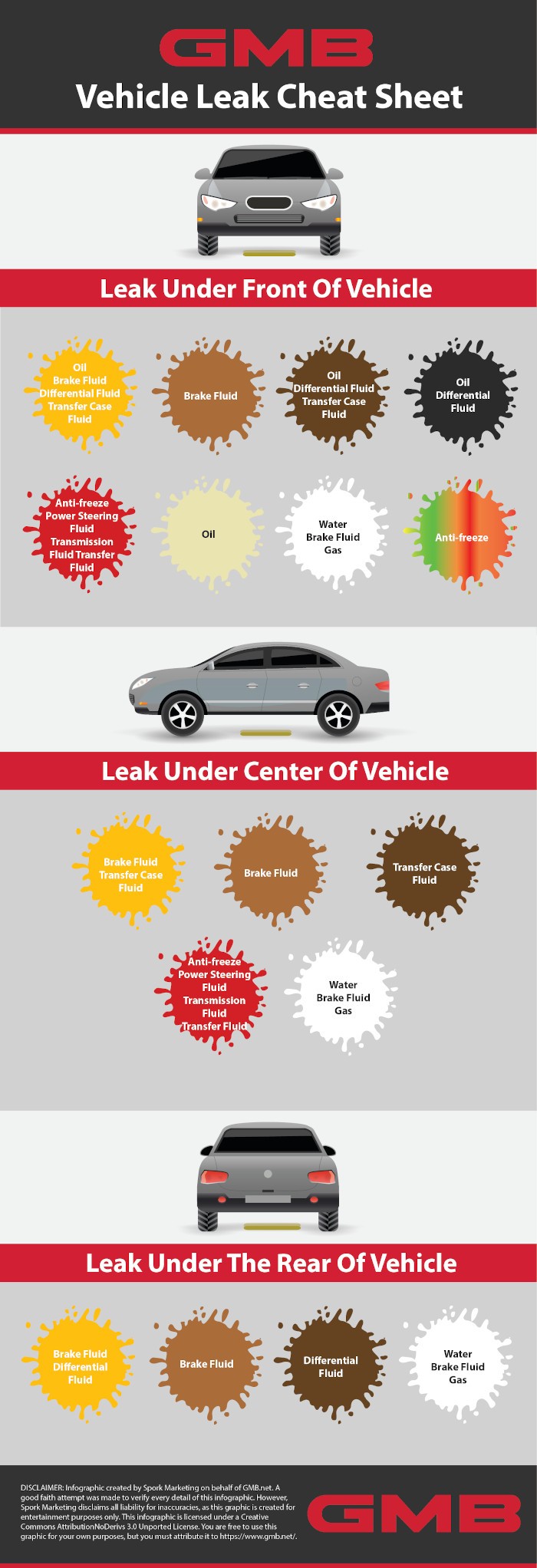Differential fluid and transmission fluid are not interchangeable and serve different purposes in your vehicle. Differential fluid lubricates the gears, while transmission fluid cools and protects the transmission components.
It’s important to understand the distinction between the two for optimal vehicle performance and maintenance. When it comes to vehicle maintenance, understanding the differences between differential fluid and transmission fluid is crucial. While both fluids play essential roles in the performance of your vehicle, they serve distinct purposes.
Differential fluid is responsible for lubricating the gears in your car’s differential, which allows the driven wheels to revolve at different speeds. On the other hand, transmission fluid is designed to cool and protect the transmission components. This differentiation ensures that both the gears and transmission operate efficiently and remain in good condition. Regularly checking and maintaining the levels and conditions of these fluids is vital for the overall health of your vehicle.

Credit: blog.amsoil.com
Introduction To Vehicle Lubricants
Differential fluid and transmission fluid are distinct lubricants essential for vehicle performance. While differential fluid is for axles, transmission fluid is for automatic transmissions in various vehicles. Understanding their unique roles is crucial for proper maintenance and optimal vehicle operation.
The Role Of Differential Fluid
Differential fluid, also known as gear oil or differential oil, plays a critical role in the performance of a vehicle’s differential. The differential is the component that allows a vehicle’s driven wheels to rotate at different speeds, which is essential when turning corners. Differential fluid lubricates the gears and bearings within the differential, reducing friction and wear, and preventing damage to the differential. It also helps to dissipate heat generated by the differential, keeping it cool and preventing overheating.The Role Of Transmission Fluid
Transmission fluid, on the other hand, is specifically designed to lubricate the gears, clutches, and bearings within a vehicle’s transmission. The transmission is responsible for transferring power from the engine to the wheels, and without proper lubrication, it can suffer from excessive wear and tear. Transmission fluid not only lubricates the transmission components but also helps to cool them down, as the transmission can generate a significant amount of heat during operation. When it comes to vehicle lubricants, it’s important to understand the specific roles of differential fluid and transmission fluid. While they may seem similar, they are designed for different components and should not be used interchangeably. Regularly changing these fluids is essential to maintain the performance and longevity of your vehicle’s differential and transmission.Composition And Properties
Differential fluid is specifically formulated to lubricate the gears and bearings within the differential assembly. It typically consists of a blend of base oils and additives that provide excellent lubrication and protection against wear and corrosion.
Transmission fluid, on the other hand, is designed to lubricate the gears, clutches, and other moving parts inside the transmission. It is composed of a mixture of base oils and additives that offer smooth shifting, heat dissipation, and protection against friction.
Functions And Uses
Differential fluid and transmission fluid serve distinct purposes in vehicle maintenance. While differential fluid lubricates gears in the differential, transmission fluid is essential for automatic transmissions. It’s crucial to use the correct fluid for each component to ensure optimal performance and longevity of your vehicle.
The functions and uses of differential fluid and transmission fluid are crucial for the smooth operation of a vehicle’s drivetrain. Both fluids serve distinct purposes in ensuring the proper functioning of the differential and transmission systems. Understanding how each fluid works and their specific applications is essential for vehicle maintenance and performance.How Differential Fluid Works
Differential fluid, also known as gear oil or differential oil, serves as a lubricant for the gears within the differential assembly. It works to reduce friction and heat generation as the gears mesh and rotate, thereby preventing wear and ensuring smooth operation. Additionally, the differential fluid helps to dissipate heat and remove contaminants, contributing to the longevity and efficiency of the differential system.How Transmission Fluid Works
Transmission fluid is designed specifically for automatic or manual transmissions. It functions as a hydraulic fluid, facilitating gear shifts and providing lubrication to the various moving components within the transmission. The fluid’s properties enable smooth gear engagement, cooling, and protection against wear, ensuring optimal performance and longevity of the transmission system.
Credit: gmb.net
Types Of Differentials And Transmissions
When it comes to the optimal performance of your vehicle, understanding the types of differentials and transmissions, as well as the fluids they require, is essential. Differential fluid and transmission fluid are both vital for the smooth operation of these systems, but they serve distinct purposes. Let’s delve into the differences and explore the types of differentials and transmissions.
Standard And Limited Slip Differentials
Differentials are crucial components in a vehicle’s drivetrain, allowing the wheels to rotate at varying speeds. There are two primary types of differentials: standard differentials and limited slip differentials.
- Standard Differentials: Also known as open differentials, these are the most common type found in vehicles. They provide equal torque to both wheels, but if one wheel loses traction, the other receives the same amount of torque, leading to potential slippage.
- Limited Slip Differentials: These differentials are designed to mitigate slippage by distributing torque to the wheel with better traction. They provide improved stability and traction, making them beneficial for off-road and high-performance vehicles.
Manual Vs Automatic Transmissions
Transmissions are responsible for transferring power from the engine to the wheels. The two main types of transmissions are manual and automatic.
- Manual Transmissions: Also known as stick shift or standard transmissions, these require the driver to manually shift gears using a clutch pedal and gearshift. They offer more direct control over the vehicle’s power and are often favored by driving enthusiasts.
- Automatic Transmissions: These transmissions shift gears automatically, allowing for a more convenient driving experience. They are popular in daily commuter vehicles and provide a smoother ride, especially in heavy traffic.
Maintenance And Replacement
When it comes to the maintenance and replacement of differential fluid and transmission fluid, it’s crucial to understand the distinct roles they play in the proper functioning of a vehicle’s drivetrain. Both fluids require regular maintenance to ensure optimal performance and longevity of the vehicle’s components.
When To Change Differential Fluid
Differential fluid should be changed according to the manufacturer’s recommended maintenance schedule. Typically, this ranges from every 30,000 to 50,000 miles, but it’s important to consult the vehicle’s owner’s manual for specific guidelines. Additionally, if the vehicle is used for towing, off-roading, or in severe driving conditions, more frequent differential fluid changes may be necessary to maintain peak performance.
When To Change Transmission Fluid
The frequency of transmission fluid changes varies depending on the type of transmission and the vehicle’s usage. Generally, it is recommended to change automatic transmission fluid every 30,000 to 60,000 miles. However, for vehicles used for heavy towing or frequent stop-and-go driving, more frequent transmission fluid changes may be necessary to prevent premature wear and ensure smooth gear shifting.

Credit: www.youtube.com
Performance And Efficiency
When it comes to the performance and efficiency of your vehicle, the choice of differential fluid and transmission fluid plays a critical role. Understanding the impact on vehicle performance and fuel efficiency considerations is essential for maintaining the optimal functioning of your vehicle.
Impact On Vehicle Performance
The choice between differential fluid and transmission fluid can significantly impact the performance of your vehicle. Differential fluid is specifically designed to lubricate the gears and bearings within the differential, ensuring smooth and efficient power transmission to the wheels. On the other hand, transmission fluid serves the crucial function of lubricating the various components of the transmission system, allowing for seamless gear shifts and overall transmission operation.
Fuel Efficiency Considerations
Both differential fluid and transmission fluid play a role in the fuel efficiency of your vehicle. Proper lubrication provided by these fluids reduces friction and heat generation within the respective systems, leading to improved overall efficiency. By ensuring that the gears and bearings within the differential and the transmission system operate smoothly, the chosen fluids contribute to minimizing energy loss and optimizing fuel consumption.
Misconceptions And Clarifications
Common Myths Debunked
One common myth is that differential fluid and transmission fluid are interchangeable, but in reality, they serve different purposes in a vehicle.
Expert Recommendations
Experts advise using the specific fluid recommended by the manufacturer for your differential and transmission to ensure optimal performance.
Case Studies
Differential fluid and transmission fluid serve different purposes in a vehicle’s drivetrain. While differential fluid lubricates the gears in the differential to allow the wheels to rotate at different speeds, transmission fluid is designed for the transmission system to provide hydraulic pressure and cooling.
Understanding the distinction between the two is crucial for proper vehicle maintenance and performance.
Real-world Scenarios
One real-world scenario that highlights the importance of using the correct fluid is when a customer brought in their vehicle for a routine transmission fluid change. The technician mistakenly used differential fluid instead of transmission fluid, which caused significant damage to the transmission. The customer had to pay for costly repairs that could have been avoided by using the correct fluid. Another scenario is when a vehicle owner neglected to change their differential fluid for an extended period, leading to excessive wear and tear on the differential. This resulted in the need for a complete differential replacement, which was a much more expensive and time-consuming repair.Lessons Learned From Vehicle Maintenance
These case studies emphasize the critical role that proper vehicle maintenance plays in preventing unnecessary damage and costly repairs. It is essential to follow the manufacturer’s recommendations for fluid types and change intervals to ensure optimal performance and longevity of your vehicle’s components. Additionally, it is crucial to have a trusted and knowledgeable technician perform routine maintenance and repairs to avoid costly mistakes or oversights. Regular maintenance and fluid changes can save you money in the long run and keep your vehicle running smoothly. In conclusion, understanding the difference between differential fluid and transmission fluid and using the correct fluid for each component is crucial for maintaining your vehicle’s performance and preventing costly repairs. These case studies highlight the importance of proper vehicle maintenance and working with trusted technicians to ensure your vehicle stays in top condition.Frequently Asked Questions
Is Differential Fluid The Same As Transmission Fluid Toyota?
Differential fluid is not the same as transmission fluid in Toyota. They serve different functions in the vehicle.
Is Gear Oil The Same As Transmission Fluid?
Gear oil is not the same as transmission fluid. Gear oil is for manual transmissions, while transmission fluid is for automatic transmissions.
What Is Another Name For Differential Fluid?
Differential fluid is also known as gear oil or differential oil, essential for optimal differential performance.
Is Diff Oil And Gear Oil The Same?
No, differential fluid and gear oil are not the same. They serve different types of transmissions or mechanical environments. Gear oil is used for manual transmissions, while transmission fluid is used for automatic transmissions in heavy and light-duty vehicles. Differential fluid is used to lubricate the gears in the differential of a vehicle.
Conclusion
Understanding the distinction between differential fluid and transmission fluid is crucial for optimal vehicle performance. Differential fluid lubricates gears, while transmission fluid cools and protects components. Regular maintenance and proper fluid checks are essential for the longevity of your vehicle’s drivetrain.
Choose wisely for smooth operations.


